
Liac 
Liac 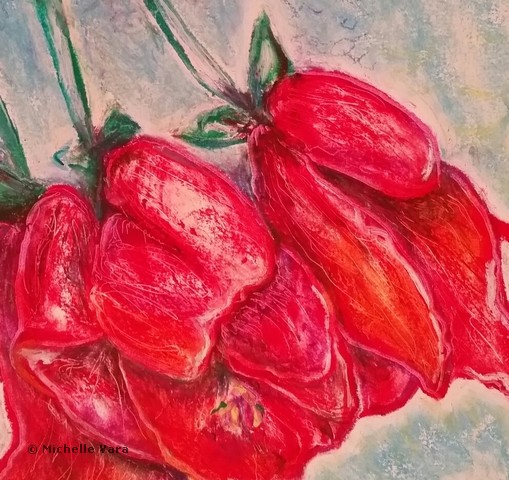
Begonia 
Begonia 
Begonia 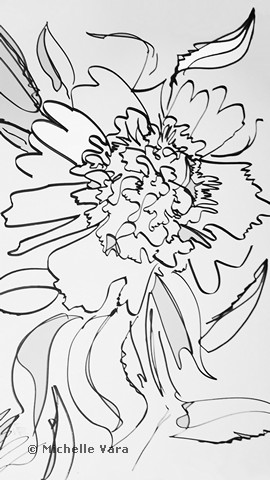
Peonies 
Peonies 
Peonies 
Peonies 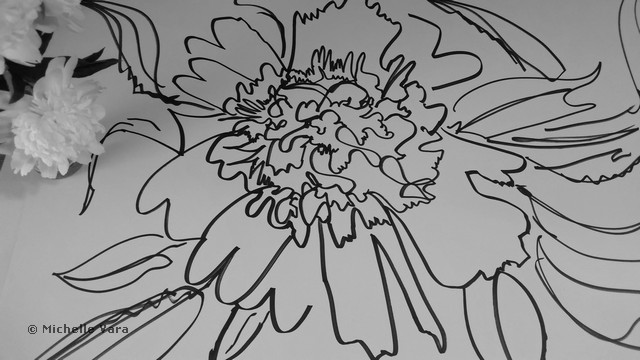
Peonies 
Peonies 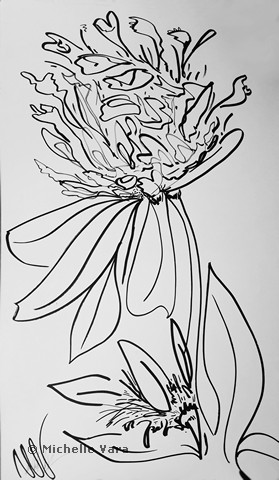
Clover Flower 
Clover Flower 
Clover Flower 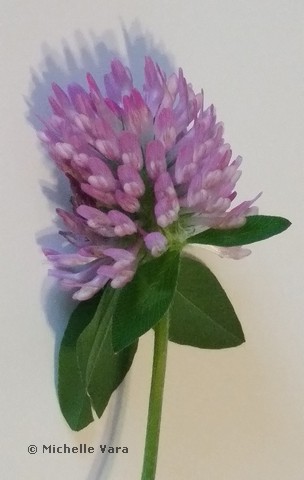
Clover Flower 
Clover Flower 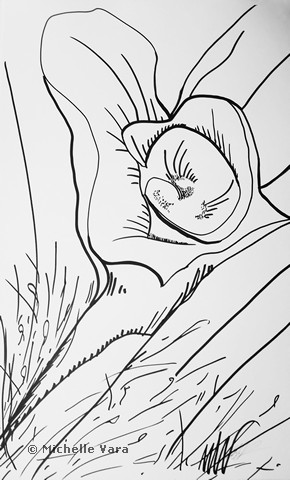
Clover Flower 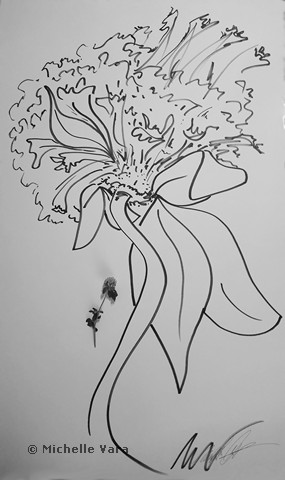
Clover Flower 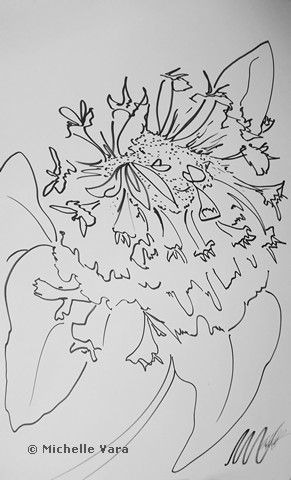
Clover Flower 
Clover Flower 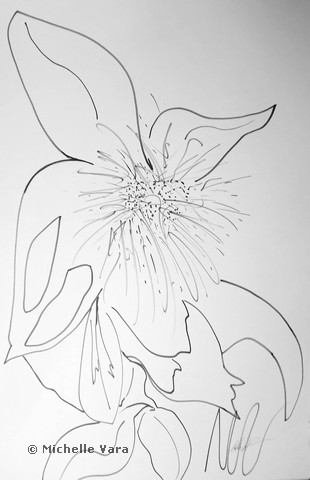
Clover Flower
Natures Classroom –
28” x 40”, marker on artist Bristol made locally at Finch Paper, Glens Falls NY.
Concepts of nature experienced in line.
Black and white drawings evocate fundamental concepts of universal truths, as nature’s language. Flower drawings are metaphors in line, reflecting extremes. The lines connect layers of philosophical discourse and depth of universal knowledge in contemplation and examination, found to be exposed by nature and revealed as simple form.
Flowers (for me) are natures complicated truths compiled in simplicity.
Reflection-
I understand nature to work as the context of boundless, limitless – dimensions, deep and connected, throughout time.
Questions begged from being- I look to the gentle leading of Nature’s extraordinary way, as s/he shapes an expansive hemstitched with universal answers, found in pondering quiet stillness of observance in a transmission of: knowledge possibly wisdom or dharma.
Natures focus on detail holds universal truths; as the if ruffles of subtle and sensitive, singing individual expression reflected in a dewdrop on the pedals and leaves. Where one can find one’s own identity and details meld into becoming, in the most beautiful way.
Nature offers huge opportunity, far deeper than a single reality, allowing imagination to travel the stars with no map or destination propelled by the breeze- learning: infinite – interconnected- higher self.
To me nature communicates on levels of serene extremes, hidden as simple, s/he waits with the patience of being overlooked, in the speed of the common world, staring into a screen of blogs, social network, and texts on a treadmill of lack and time. The work speaks to missed opportunity as well as universe communicating without words to a very personal you.
Principal words-
Natures Platitude
Model = Unique – Quality – individual – the essence – evolution
Seed = potential – possibility
Characteristics: constant change – complex – simple – definitive
Concepts-
The Great Chain of Being or scala naturæ is a classical conception of the metaphysical order of the universe in which all beings from the most basic up to the very highest and most perfect being are hierarchically linked to form one interconnected whole. Although this notion was viewed in various ways from antiquity and throughout the medieval period, its philosophical formulation can perhaps best be seen beginning with Aristotle, moving through the Neoplatonists, and culminating in the theological vision of the scholastics.
- http://www.newworldencyclopedia.org/entry/Great_Chain_of_Being
- The Basic Works of Aristotle. Translated by Richard McKeon. Random House, 1941. ISBN 0375757996
The Great Chain of Being: a powerful visual metaphor for a divinely inspired universal hierarchy ranking all forms of higher and lower life; humans are represented by the male alone. From Didacus Valades, Rhetorica Christiana (1579).
One example of the concept is by Didacus Valades from his 1579 Rhetorica Christiana.
Dharma: Rituals and rites of passage[2]. Yoga, personal behaviors[3]. Virtues such as Ahimsa (non-violence)[4]. Law and justice[5]. Sannyasa and stages of life[6]. Duties, such as learning from teachers[7]. Dharma has multiple meanings.[1] Above are a few examples.
Dharma (/ˈdɑːrmə/;[8] Sanskrit: धर्म, translit. dharma, pronounced [dʱəɾmə] (About this sound listen); Pali: धम्म, translit. dhamma, translit. dhamma) is a key concept with multiple meanings in the Indian religions – Hinduism, Buddhism, Jainism, and Sikhism.[9] There is no single-word translation for dharma in Western languages.[10]
In Hinduism, dharma signifies behaviours that are considered to be in accord with Ṛta, the order that makes life and universe possible,[11][note 1] and includes duties, rights, laws, conduct, virtues and “right way of living”.[1] In Buddhism, dharma means “cosmic law and order”,[11] and is also applied to the teachings of the Buddha.[11] In Buddhist philosophy, dhamma/dharma is also the term for “phenomena”.[12][note 2] Dharma in Jainism refers to the teachings of tirthankara (Jina)[11] and the body of doctrine pertaining to the purification and moral transformation of human beings. For Sikhs, the word dharm means the path of righteousness and proper religious practice.[13)